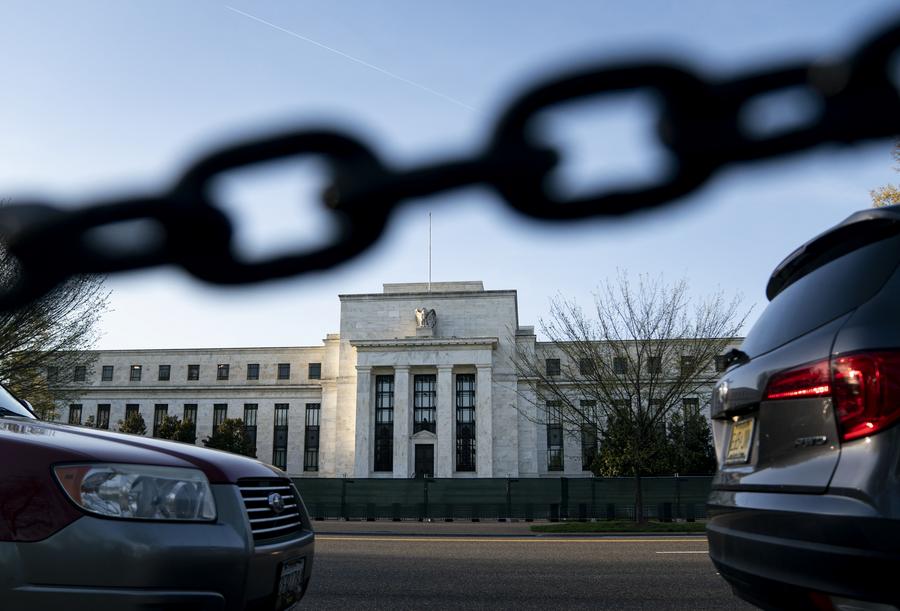




- BRNN
- BRI News
- BRNN News
- Database
Official Documents Polices and Regulations
Inter-government Documents International Cooperation BRI Countries
Business Guide Economic Data BRI Data
Trade
Investment Projects Latest projects
Cases - Content Pool

This photo taken on April 20, 2022 shows the U.S. Federal Reserve in Washington, D.C., the United States. (Xinhua/Liu Jie)
The U.S. business community is sounding alarms over the Trump administration's latest tariff policies, warning the measures could backfire by raising consumer costs, provoking retaliation from trading partners, disrupting supply chains and causing long-term economic harm.
Rising costs and concerns
Many businesses, particularly small- and medium-sized enterprises, are struggling to cope with the extra costs. Companies selling everything from daily necessities to automobiles are adapting by seeking alternative suppliers or paying more for ingredients and parts once available at lower prices.
"When you think about your trade policy, you want to be very careful not to exercise an extreme degree of pressure via higher prices on these sectors, and that's why so far there have been the exemptions and exclusions that we've seen," Gregory Daco, chief economist at EY-Parthenon, told CNN in an interview. "It's because there's a gradual realization that imposing a tax on imports of those critical products eventually hurts U.S. businesses and hurts U.S. consumers and therefore leads to lower economic activity."
The tariffs have increased investors' perception of risk in the U.S. and caused widespread concern. "The administration's approach to policy and its lack of transparency in terms of motivations have all led to a distinct sense of unease in financial markets," said David Page, head of macro research for Axa Investment Managers in London, "It doesn't look like what we have been used to in terms of well-thought-out policy."
Calls for changes in trade policies
There is no winner in a trade war. The current tariff policies are creating significant challenges to the global economy, and it is crucial to engage in dialogue and pursue international agreements that benefit all parties.
"If you take tariffs, if you take debt, if you take the rising power challenging existing power, if you take those factors and look at the factors, those changes in the orders, the systems, are very, very disruptive. How that's handled could produce something that is much worse than a recession. Or it could be handled well," billionaire Ray Dalio said in an interview with NBC. He added that whether tariffs are implemented in a "stable" way or a "chaotic and disruptive way" makes "all the difference in the world."
In an interview with the Financial Times, JPMorgan CEO Jamie Dimon urged U.S. President Donald Trump to immediately "engage" with China over dueling tariffs before a global trade war erodes U.S. credibility.
"I don't think there's any engagement right now... it doesn't have to wait a year. It could start tomorrow," he said.

Tel:86-10-65363107, 86-10-65368220, 86-10-65363106